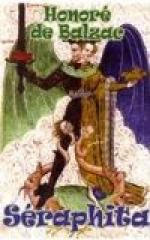Charles-Leonhard de Stahlhammer.
“The proofs which Swedenborg gave of his mission to the royal families of Sweden and Prussia were no doubt the foundation of the belief in his doctrines which is prevalent at the two courts,” said Monsieur Becker, putting the gazette into the drawer. “However,” he continued, “I shall not tell you all the facts of his visible and material life; indeed his habits prevented them from being fully known. He lived a hidden life; not seeking either riches or fame. He was even noted for a sort of repugnance to making proselytes; he opened his mind to few persons, and never showed his external powers of second-sight to any who were not eminent in faith, wisdom, and love. He could recognize at a glance the state of the soul of every person who approached him, and those whom he desired to reach with his inward language he converted into Seers. After the year 1745, his disciples never saw him do a single thing from any human motive. One man alone, a Swedish priest, named Mathesius, set afloat a story that he went mad in London in 1744. But a eulogium on Swedenborg prepared with minute care as to all the known events of his life, was pronounced after his death in 1772 on behalf of the Royal Academy of Sciences in the Hall of the Nobles at Stockholm, by Monsieur Sandels, counsellor of the Board of Mines. A declaration made before the Lord Mayor of London gives the details of his last illness and death, in which he received the ministrations of Monsieur Ferelius a Swedish priest of the highest standing, and pastor of the Swedish Church in London, Mathesius being his assistant. All persons present attested that so far from denying the value of his writings Swedenborg firmly asserted their truth. ’In one hundred years,’ Monsieur Ferelius quotes him as saying, ’my doctrine will guide the Church.’ He predicted the day and hour of his death. On that day, Sunday, March 29, 1772, hearing the clock strike, he asked what time it was. ‘Five o’clock’ was the answer. ‘It is well,’ he answered; ‘thank you, God bless you.’ Ten minutes later he tranquilly departed, breathing a gentle sigh. Simplicity, moderation, and solitude were the features of his life. When he had finished writing any of his books he sailed either for London or for Holland, where he published them, and never spoke of them again. He published in this way twenty-seven different treatises, all written, he said, from the dictation of Angels. Be it true or false, few men have been strong enough to endure the flames of oral illumination.




